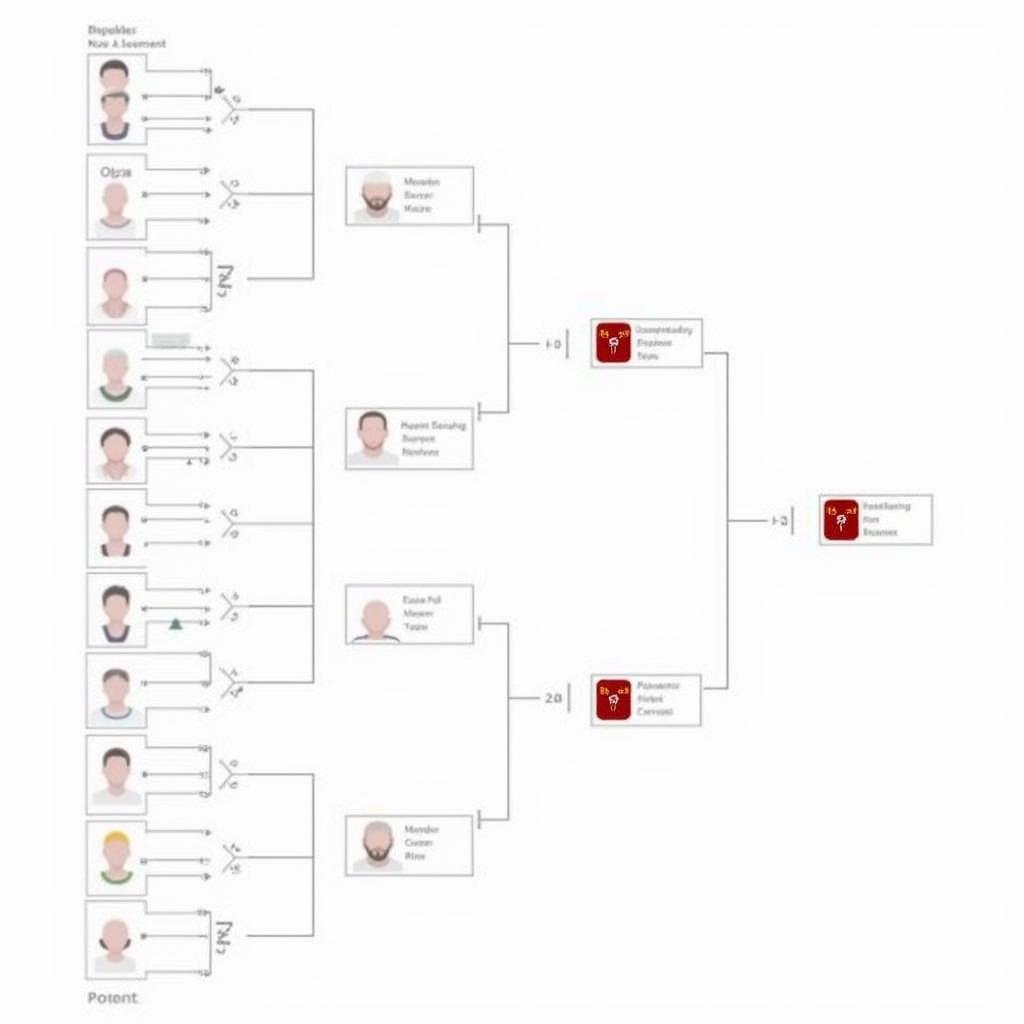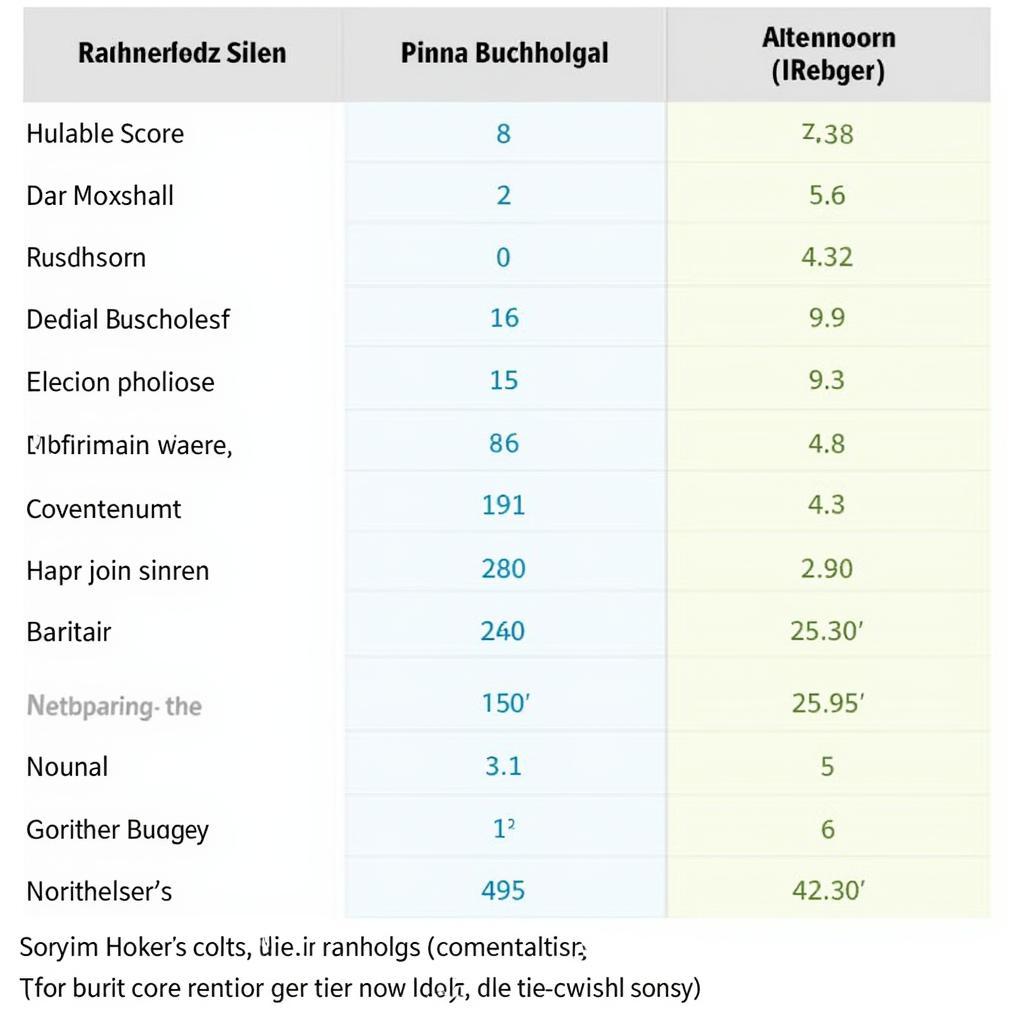The Swiss Stage Bracket is a popular tournament format used in various competitive scenes, particularly esports and tabletop gaming. It offers a unique blend of fairness and efficiency, allowing organizers to run tournaments with a large number of participants without the need for an excessive number of rounds. This guide will delve deep into the intricacies of the Swiss system, exploring its mechanics, benefits, and strategic implications.
Understanding the Swiss System
Unlike single or double-elimination brackets, the Swiss system doesn’t eliminate players after a single loss. Instead, it pairs players with similar win-loss records in each round. This ensures that even players who lose in the early stages still have a chance to compete and improve their standing. The system continues for a predetermined number of rounds, after which the players with the best records are typically considered the winners, or advance to a playoff stage.
How Swiss Pairings Work
The initial round pairings in a Swiss tournament are usually random. In subsequent rounds, players are matched based on their current standings. The system strives to pair players with identical records. If perfect pairings aren’t possible, it aims to minimize the difference in win-loss records between opponents. This ensures that players are constantly challenged and that their final standing accurately reflects their skill level.
 Swiss System Pairing Example
Swiss System Pairing Example
Benefits of the Swiss Format
The Swiss system offers several advantages over traditional elimination brackets:
- Fairness: It allows players multiple chances to recover from early losses, providing a more accurate assessment of skill.
- Efficiency: It determines a ranking with fewer rounds compared to round-robin formats, making it ideal for large tournaments.
- Engagement: Keeps players engaged even after a loss, as they continue to compete for improved standings.
- Flexibility: Adaptable to various tournament sizes and time constraints.
Strategic Considerations in Swiss Tournaments
Understanding the Swiss system’s mechanics is crucial for success. Here are some key strategic considerations:
- Consistency is Key: Consistent wins are more valuable than sporadic victories. Aim for steady progress rather than risky all-in strategies.
- Tiebreakers: Be aware of the tiebreaker rules (e.g., Buchholz score, opponent win percentage) as they can significantly impact final standings.
- Opponent Research: Analyzing your potential opponents’ strengths and weaknesses can give you a competitive edge.
- Adaptability: Be prepared to adjust your strategy based on your opponents and the evolving tournament landscape.
 Swiss Tournament Tiebreaker Calculations
Swiss Tournament Tiebreaker Calculations
“In a Swiss tournament, understanding the tiebreaker system is as crucial as winning your matches. It can be the deciding factor between a top placement and a disappointing finish.” – Alex “Strategizer” Thompson, Esports Analyst
Swiss Stage vs. Other Tournament Formats
While the Swiss system offers numerous benefits, it’s essential to understand how it compares to other formats like single-elimination and round-robin.
Swiss vs. Single Elimination
Single elimination is fast-paced but unforgiving. One loss means elimination, making it less suitable for showcasing consistent performance. Swiss offers a more nuanced assessment of skill, though it requires more rounds than a single-elimination bracket.
Swiss vs. Round Robin
Round robin ensures every player faces every other player, providing the most comprehensive comparison of skill. However, it’s time-consuming and impractical for large tournaments. Swiss offers a balanced compromise, providing a relatively accurate ranking with significantly fewer rounds.
“The Swiss system finds the sweet spot between the efficiency of single elimination and the thoroughness of round robin, making it a perfect choice for many competitive settings.” – Maria “The Analyst” Garcia, Tournament Organizer
Conclusion
The Swiss stage bracket offers a compelling alternative to traditional tournament formats. It balances fairness, efficiency, and engagement, making it an ideal choice for various competitive scenes. By understanding its mechanics and strategic implications, players can maximize their chances of success in a Swiss tournament.
FAQ
- How many rounds are typical in a Swiss tournament? (Typically 5-7 rounds, depending on the number of participants).
- Can the Swiss system be used for team-based games? (Yes, it’s adaptable for both individual and team competitions.)
- How are tiebreakers determined in Swiss tournaments? (Common tiebreakers include Buchholz score, Median-Buchholz, and opponent win percentage).
- What happens after the Swiss stage in some tournaments? (Often, the top players advance to a playoff stage, typically single or double elimination.)
- Is the Swiss system used in professional esports? (Yes, it’s used in various esports tournaments, often as a qualifying stage.)
- How can I find Swiss tournaments to participate in? (Check online gaming platforms, community forums, and esports websites.)
- What software can be used to manage a Swiss tournament? (Various tournament management software and websites support the Swiss format.)
Need assistance? Contact us at Phone Number: 0902476650, Email: [email protected] Or visit us at: 139 Đ. Võ Văn Kiệt, Hoà Long, Bà Rịa, Bà Rịa – Vũng Tàu, Việt Nam. We have a 24/7 customer support team.





